NEWS
Buddhist Non-profit FHSM Delivers Pandemic Relief in India amid Humanitarian Crisis
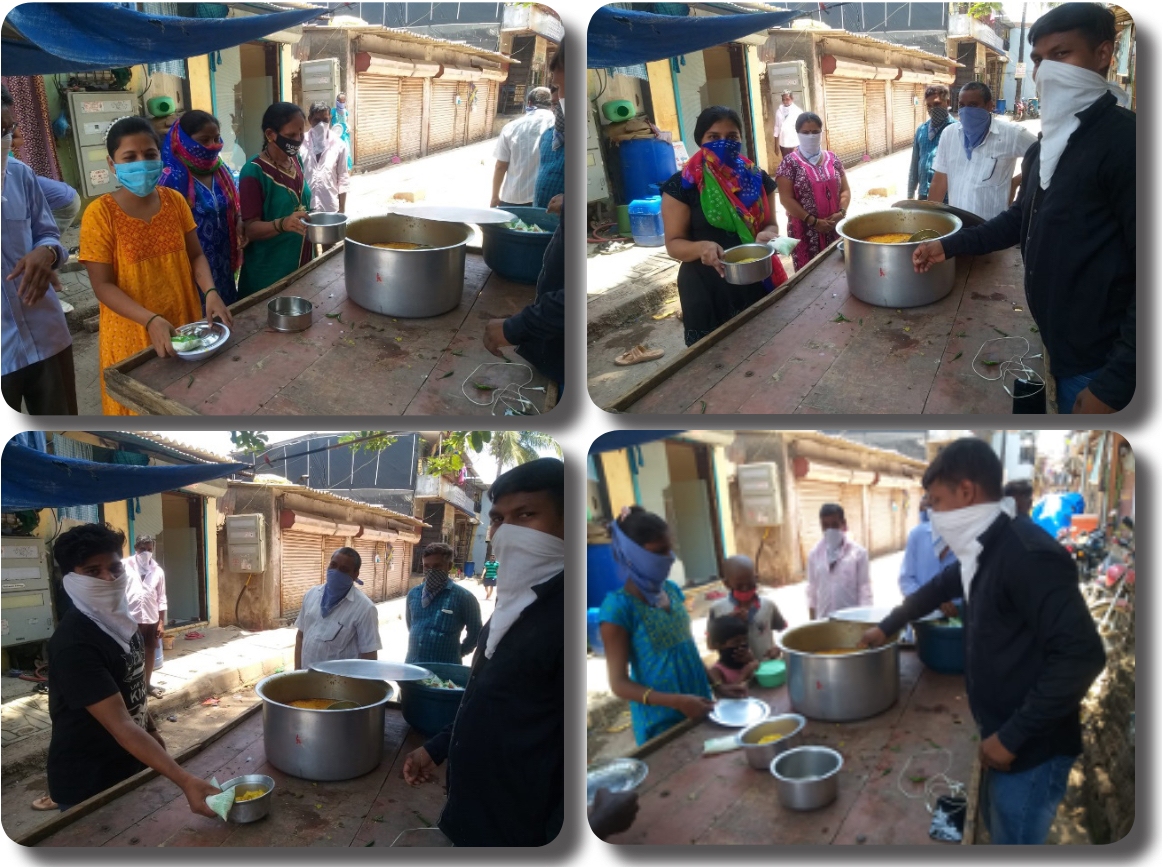
Image courtresy of FHSM
The Buddhist non-profit organization The Foundation of His Sacred Majesty (FHSM) has provided a new update on its ongoing relief and rehabilitation operations in response to the humanitarian emergency that has emerged in India amid the COVID-19 pandemic. The organization has been working across the country to provide vital emergency aid to underprivileged and vulnerable communities who have been living under strict lockdown conditions since 24 March as part the Indian government’s novel coronavirus pandemic response.
“It has been extremely challenging thus far as we are facing total lockdown, which means that we cannot work officially,” FHSM president Gauthama Prabu told Buddhistdoor Global. “The only reason why we are able to go out is because we are buying groceries, vegetables, medicines, visiting hospitals, and so on. After 12:00 pm everything is closed and only hospitals and police stations are open.”
Headquartered in the Indian city of Chennai (formerly Madras) in the state of Tamil Nadu, the foundation is running an ongoing COVID-19 emergency relief fund to tackle the devastating repercussions being felt by disadvantaged communities across India. The FHSM emphasized that the nationwide lockdown “has brought the lives and livelihoods of 1.3 billion people to a complete standstill. India’s helpless poor are starving for food and struggling to get essential items for their survival. The harsh brunt of the coronavirus pandemic has been at its worst on children, women, and the elderly.”
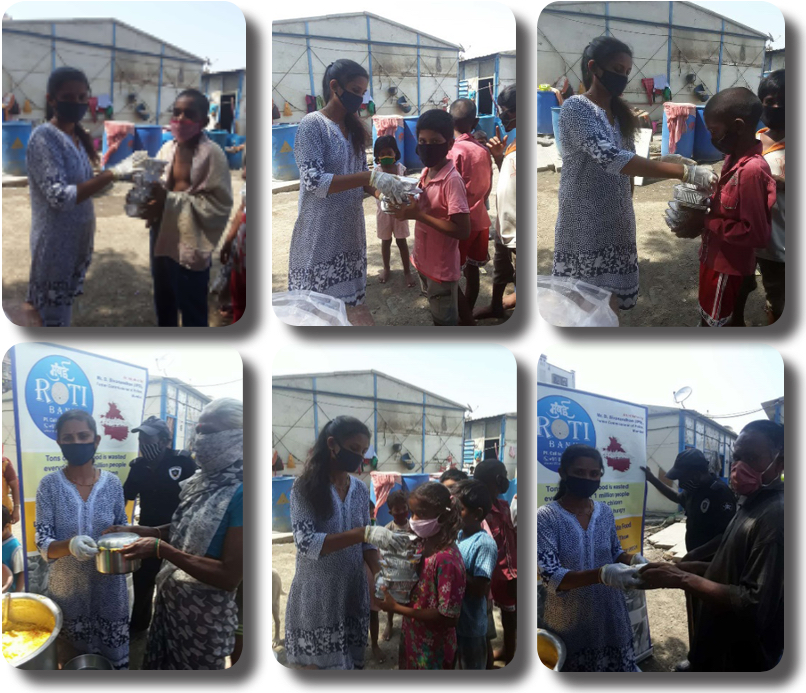
Image courtesy of FHSM
The FHSM’s emergency relief fund is being used to undertake relief work in an effort to provide members of India’s most vulnerable and ignored communities with basic living necessities such as food staples and personal hygiene items.
“It is immensely challenging work in these conditions, so we have been looking at our task in different aspects of the lockdown: 1) eradicating hunger; 2) health and safety for sanitation workers; 3) education for poor children; 4) micro-businesses for the poor during lockdown; and 5) counseling for families in distress,” explained Prabu, who is also chairman of the Tamil Buddhist Society.
“For No. 1, we are providing free rations to the poor. For No. 2, we are supplying masks, gloves, and sanitizers. For No. 3, we are providing online courses/classes to more than 190 students with the help of our staff. For No. 4, FHSM staff are conducting focus group discussions to facilitate developing income-generating activities for the poor in clusters. In a single cluster there are five members who jointly undertake business activities. We have completed focus group discussions, but we need to raise more funds for this important area. For No. 5, we have more than 20 staff who are in touch with communities by telephone. Every day about 7–8 families receive counseling.”
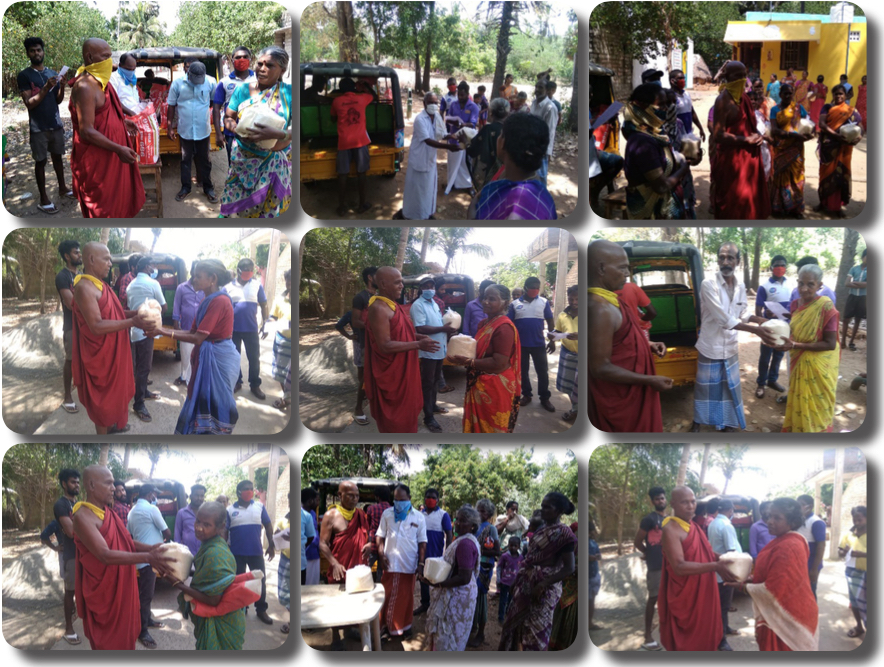
Image courtesy of FHSM
The government of India imposed a nationwide lockdown on 24 March as part of its strategy for containing the spread of the novel coronavirus, in the process pushing millions of poor families from vulnerable communities into destitution and debt. The lockdown has since been extended several times and is now due to end on 31 July, with the possibility that the authorities may move to extend the lockdown further.
India has to date reported 566,840 confirmed cases of COVID-19 and 16,893 deaths, with 334,822 people reported to have recovered.*
“We have team members and volunteers working across the country to help relieve the suffering communities who have ben hardest hit by the lockdown,” Prabu emphasized. “For example, FHSM team members have prepared and distributed cooked lunches and dinners for 844 people in Janata Nagar, Maharashtra, every day since 24 April. In order to make this happen, FHSM volunteers Geetanjali Chavan, Jemeela Begum, Santosh Surve, and Poonam Kanoujiya are staying with the community to better provide relief measures. This initiative was made possible with the help of corporate donors CRISIL and Roti Bank.”
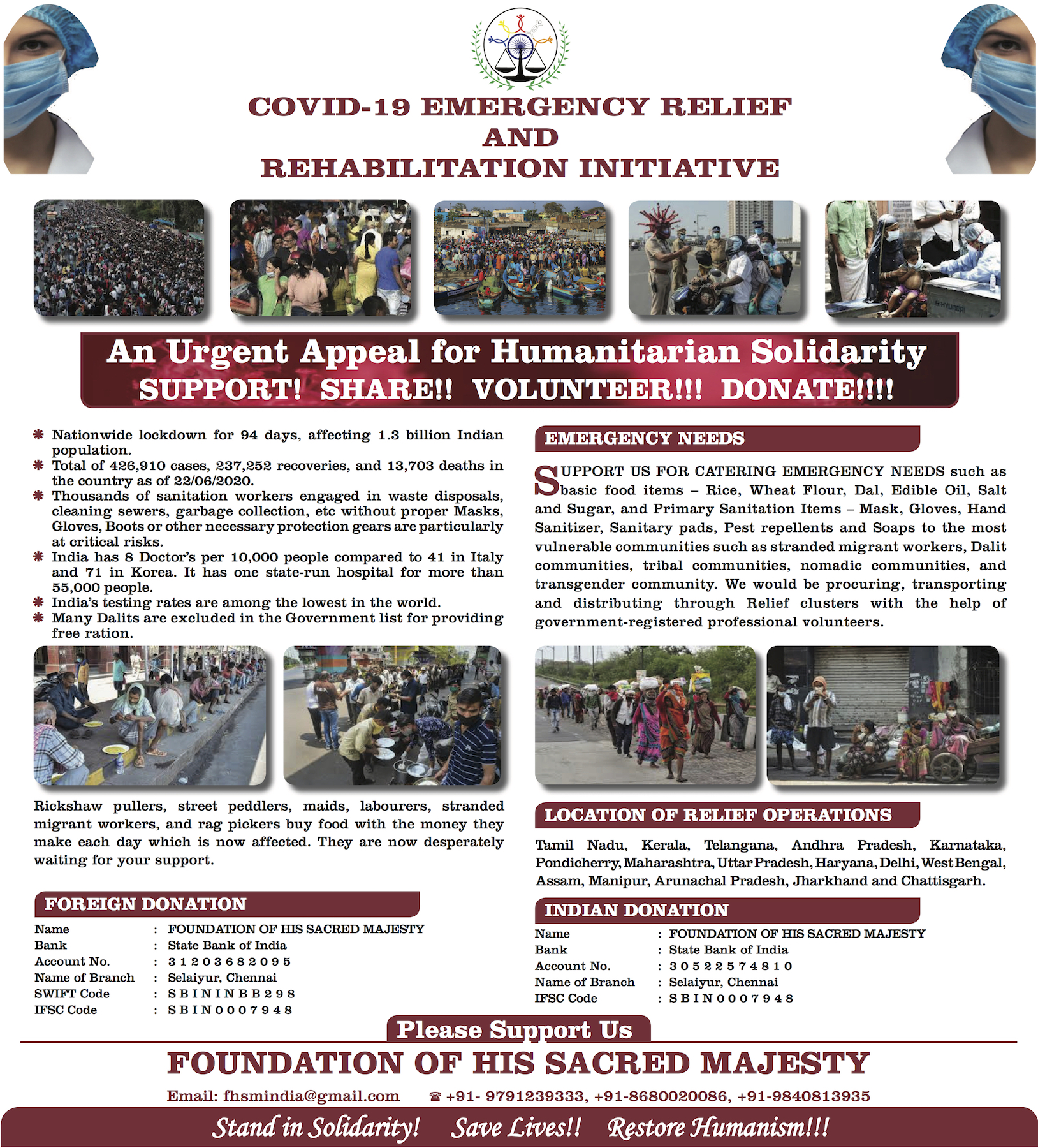
Image courtesy of FHSM
Named in commemoration of the Mauryan emperor Ashoka (r. c. 268–c. 232 BCE), a key figure in the propagation of Buddhism across Asia, the Foundation of His Sacred Majesty was founded in 2007 with a stated mission to: “preserve, promote, and disseminate the principles of liberty, equality, fraternity, and social justice through non-formal education, sustainable livelihood, and conservation of ecology, alternative/preventive medicines, social empowerment, social advocacy, and social development in order for the restoration of the human dignity of the poor and marginalized.” (Facebook)
The FHSM is affiliated with the Bangok-based International Network of Engaged Buddhists, which has launched a parallel emergency fund: Mindful Action: COVID-19 Emergency Relief Fund, International Network of Engaged Buddhists (INEB) to support vulnerable groups in regions and countries in the INEB network, specifically in South and Southeast Asia.
“We are immensely grateful to our team of volunteers, who have co-operated and co-ordinated with FHSM staff to implement our relief operations,” said Parbu. “We have taken special care to maintain hygiene and sanitary standards for our field activities. All staff members and volunteers were given masks and sanitizer. We are also thankful to the government officials, local administrations, experts, and social workers who have been constantly mentoring us and facilitating our work.”
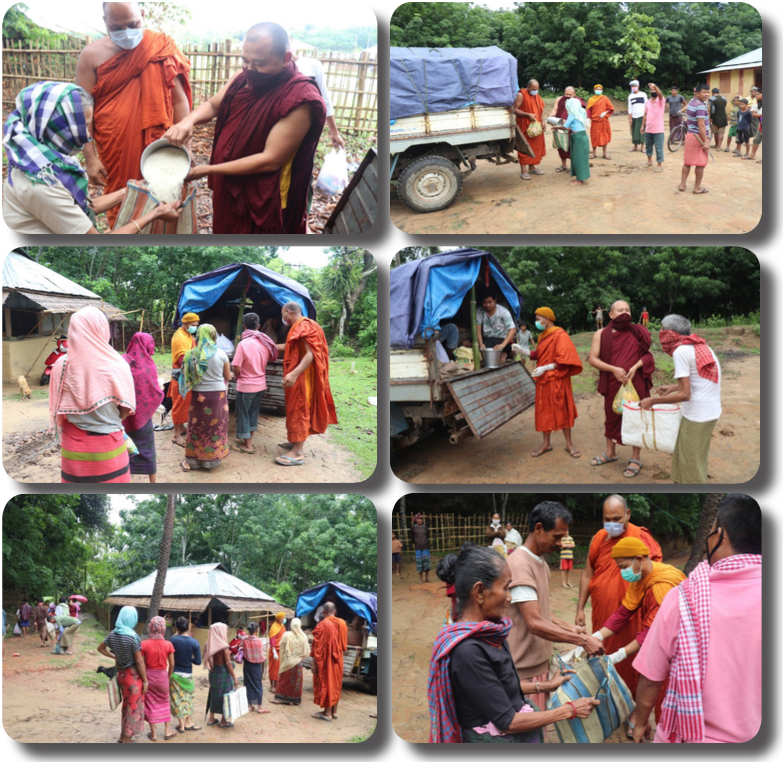
Image courtesy of FHSM
At the time of writing on 30 June, global confirmed COVID-19 infections were reported to have reached 10.3 million, with 505,518 deaths so far recorded and 5.2 million recovered.* The World Health Organization in March estimated the mortality rate from the SARS-CoV-2 coronavirus, believed to have originated in Wuhan, China, at 3–4 per cent, based on incomplete and preliminary data, with the elderly and people with underlying health conditions considered most at risk. More recent data suggests that the mortality rate may be significantly lower, however studies are inconclusive due to variations in COVID-19 testing procedures in different countries, and differing methodologies for classifying and reporting COVID-19 as a cause of death.
International donations for the FHSM can be made to:
Foundation of His Sacred Majesty
State Bank of India
Account number: 31203682095
Branch: Selaiyur, Chennai
SWIFT code: SBININBB298
IFSC code: SBIN0007948
Within India, donations to the fund can be made to:
Foundation of His Sacred Majesty
State Bank of India
Account number: 30522574810
Branch: Selaiyur, Chennai
IFSC code: SBIN0007948
For more information contact:
Email: fhsmindia@gmail.com
Tel: +91-9791239333 / +91-8680020086 / +91-9840813935
See more
Foundation of His Sacred Majesty
Foundation of His Sacred Majesty (Facebook)
Foundation of His Sacred Majesty (LinkedIn)
International Network of Engaged Buddhists
Mindful Action: COVID-19 Emergency Relief Fund, International Network of Engaged Buddhists (INEB) (INEB)
Statement Concerning the COVID-19 Pandemic from International Network of Engaged Buddhists (INEB) (INEB)
Related news from Buddhistdoor Global
FHSM Delivers Emergency Relief to Vulnerable Communities Under Lockdown in India
International Network of Engaged Buddhists Launches COVID-19 Emergency Relief Fund
INEB Issues Public Statement for a Compassionate Global Response to the Coronavirus Crisis
Appeal for COVID-19 Emergency Relief for Vulnerable Communities in India
Related features from Buddhistdoor Global
Makers
What to Do with this World?
Love in the Time of Coronavirus, Part Three: Offering
See all coronavirus-related content from Buddhistdoor Global














